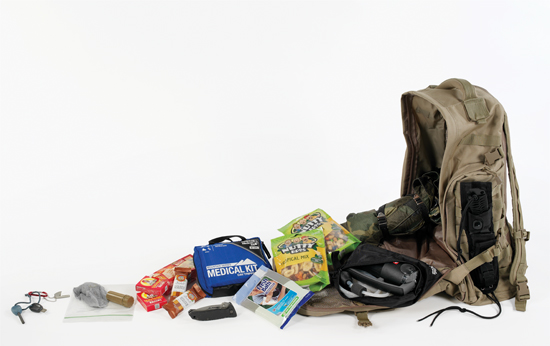

Bug Out, Shelter-in-Place or Both?
What plan should you be working on, sheltering in place, bugging out, or a mixture of both?
The answer depends on what the real estate agents always say is important—location, location, location. Simply put, is your home someplace you would want to get to or away from? The answer to that requires an equally simple set of additional questions: Where do you live? Is your home in the middle of a city? Is the area already high crime? Who are your neighbors? How aware of your neighborhood are outside people, i.e., is it a high-value area that might provide the best return for the least amount of work by marauders?
Next, ask if your home and property can be reasonably defended for a long period of time. Do you have the ability to harden any area of your house? Is there any chance your utility services or any other aspect of modern comfort, safety, and convenience will remain intact, even if it is through your own power generation?
Finally, is your home a place you cannot leave due to an invalid family member or some other such limiting condition? If your answers to these and other questions point to relocating to a different piece of real estate rather than staying in place, then you will need to be focused on being able to take as many essential items with you as you can, maybe at a moment’s notice, leaving behind only non-essential, replaceable items
of little survival value.
When Is it Time to Bug Out?
Hopefully, some of you have already looked ahead, or thought ahead, and have realized that living in a trendy urban area in the midst of or proximate to a big city with major crime problems isn’t the best of ideas.
Cops and firemen who regularly deal with the dregs of society have made it a long-standing tradition to live and keep their families as far away from the urban mess as possible.
In the rural area in which I live, there are firefighters and cops from both the nearby major urban police department, as well as from many of the now decayed suburban municipalities surround ing the main urban center that used to be considered safe.
In my neck of the woods, an average cop with any time under their belt has dreamed of, and sometimes managed to obtain, a “cabin in the woods” on a few acres of defensible land. Those of us who have made this choice are already ahead of the game and are not trying to work our way out of a hole. Cops in particular have been moving out and away from their jurisdictions for the 32 years I have been a cop, but so, too, have many firefighters.
Recently, more and more of those cops who have been moving “out” have been doing so not just to keep their families away from day to day criminal activity and other undesirable conditions, but to find a location from which they may be able to withstand a larger societal collapse. This is an entirely new twist on the practice.
If you are hemmed into living in a location near large centers of our population (the epicenters of civil unrest), and you are living in a home that is part of a shared building, such as an apartment or other multi-unit, multi-family condo structure, or a rehabbed or converted factory or warehouse, you will be lucky to just make it out of your
unit in one piece.
In those kinds of living spaces, the chance of being able to defend yourself against a large number of desperate neighbors or interlopers for any long-term period is very poor, since you cannot protect all sides of your living area or even have visibility on all sides, due to the common-wall construction. If you live in these types of structures, your plan should be for you to leave at the first sign of trouble and know where you are going to go via the safest route.
From rolling blackouts to hurricanes, floods to tornadoes, power can go out at a moment's notice. If the grid fails, the PowerPot will keep you charging! The PowerPot thermoelectric generator converts any heat source directly into power that charges your USB handheld devices. Get Yours Now


![Best Concealed Carry Guns In 2025 [Field Tested] Wilson Combat EDC X9S 1](https://gundigest.com/wp-content/uploads/Wilson-Combat-EDC-X9S-1-324x160.jpg)


![Best 9mm Carbine: Affordable PCCs [Tested] Ruger Carbine Shooting](https://gundigest.com/wp-content/uploads/Ruger-Carbine-Shooting-100x70.jpg)
![Best AR-15: Top Options Available Today [Field Tested] Harrington and Richardson PSA XM177E2 feature](https://gundigest.com/wp-content/uploads/Harrington-and-Richardson-PSA-XM177E2-feature-100x70.jpg)
